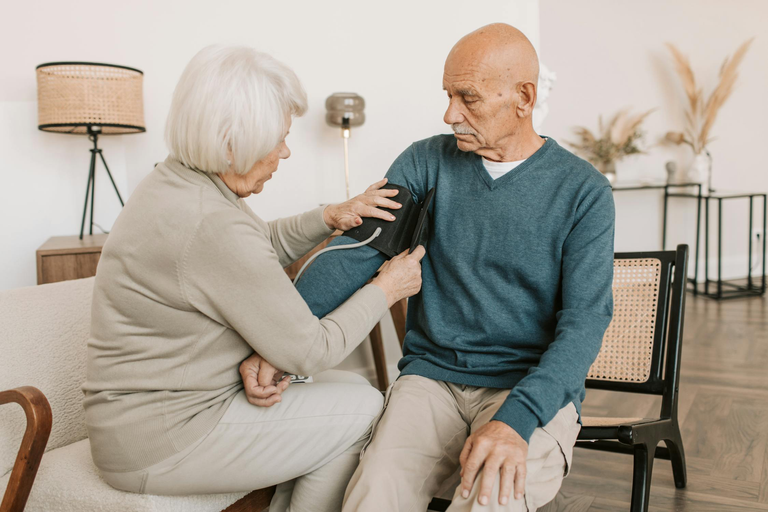An in-depth look at Parkinson's disease to help people understand it better

Parkinson's disease is a long-term problem that gets worse over time and damages the nervous system. This is a disease that affects a lot of people around the world. The motor system is mostly affected by this condition, which causes a number of signs and problems. The goal of this essay is to give a full picture of Parkinson's disease by looking at all of its parts, including what causes it, what signs it has, how to diagnose it, and how to treat it.
The exact cause of Parkinson's disease is not fully known, but it is thought that genetic and external factors work together to make it happen. Genetic changes in the Parkin, PINK1, and DJ-1 genes have been linked to cases of the disease that run in families, according to scientists. The climate may affect how much people are exposed to pesticides and some toxins, but scientists are still trying to figure out how these chemicals actually hurt the body.
Parkinson's disease is an illness that has many different signs and symptoms. The substantia nigra is the part of the brain that makes dopamine. These signs happen because neurons in that area are slowly dying. When you have certain medical problems, you may experience physical signs called motor symptoms. These signs include bradykinesia, which means moving slowly, rigidity, which means muscles that are not flexible, resting twitches, and unstable posture. People with Parkinson's disease may have more signs than just motor problems as the disease gets worse. Some of these non-motor signs are depression, trouble sleeping, memory loss, and autonomic dysfunction, which can show up as digestive (like constipation) or urinary problems.
It can be hard to tell if someone has Parkinson's disease because there aren't any clear tests available yet. In order to make a diagnosis, doctors generally need to look at a person's full medical history, symptoms, and perform a thorough neurological exam. Doctors may use more imaging methods, like magnetic resonance imaging (MRI) or positron emission tomography (PET) scans, to rule out other possible diseases and confirm the diagnosis. Even so, getting a correct diagnosis still requires a methodical process of ruling out other possible conditions or reasons.
One important thing about Parkinson's disease is that it has Lewy bodies. When the disease affects neurons, these strange protein clumps, which are mostly made up of alpha-synuclein, show up. Lewy bodies mess up the normal functioning of cells, which leads to neurons that make dopamine breaking down and not working properly. Parkinson's disease signs, both motor and non-motor, are caused by not having enough dopamine.
Right now, there is no cure for Parkinson's disease, but there are a number of treatments that can help people with the disease deal with their symptoms and make their general quality of life better. People think that levodopa is the best way to treat neurological conditions and ease their symptoms. This chemical helps make dopamine, which is a brain chemical that controls action and other things. Together with other types of drugs, like dopamine agonists and monoamine oxidase B inhibitors, your doctor may also give you these to help you. In addition, speech therapy, occupational therapy, and physical therapy are all important parts of treating motor symptoms and specific functional problems. When things get more complicated, deep brain stimulation (DBS) and surgery may be good choices.
Further study is being done to learn more about Parkinson's disease and come up with better ways to treat it as our knowledge of the disease grows. Genetics, imaging technologies, and molecular biology have all made progress that gives us hope that we can find diseases earlier and create treatments that are especially designed to treat them. Researchers are also still looking into the benefits of neuroprotective drugs and therapies that use stem cells. These efforts give us hope for the future when it comes to creating treatments that might be able to change how diseases grow.
In conclusion, Parkinson's disease is a problem that gets worse over time and makes people's lives much worse. We've talked about the causes, symptoms, diagnosis, and ways to deal with this disease in this essay. The goal of ongoing study is to fully understand the complicated pathophysiology of Parkinson's disease. The goal is to get better at diagnosing the disease, come up with better ways to treat it, and eventually find a fix for it. We can work toward a future where the bad effects of Parkinson's disease are lessened by educating the public and funding scientific research. This will help people who have the disease to live full and meaningful lives.
References
- https://emedicine.medscape.com/article/1831191-overview
-https://my.clevelandclinic.org/health/diseases/8525-parkinsons-disease-an-overview - https://www.mayoclinic.org/diseases-conditions/parkinsons-disease/symptoms-causes/syc-20376055
- https://www.nia.nih.gov/health/parkinsons-disease
- https://en.m.wikipedia.org/wiki/Parkinson%27s_disease
- https://www.nhs.uk/conditions/parkinsons-disease/
- https://www.who.int/news-room/fact-sheets/detail/parkinson-disease


Thanks for your contribution to the STEMsocial community. Feel free to join us on discord to get to know the rest of us!
Please consider delegating to the @stemsocial account (85% of the curation rewards are returned).
You may also include @stemsocial as a beneficiary of the rewards of this post to get a stronger support.